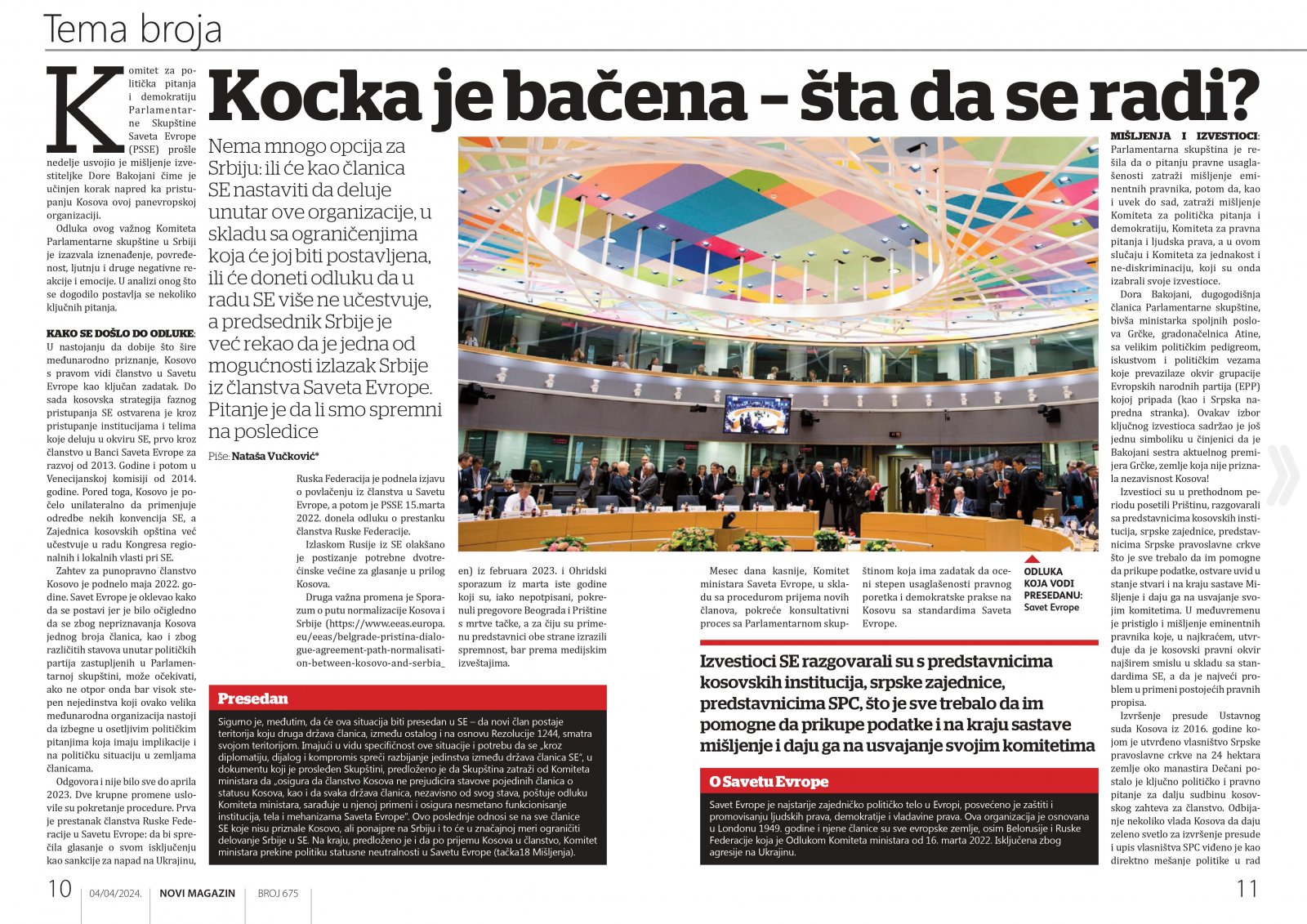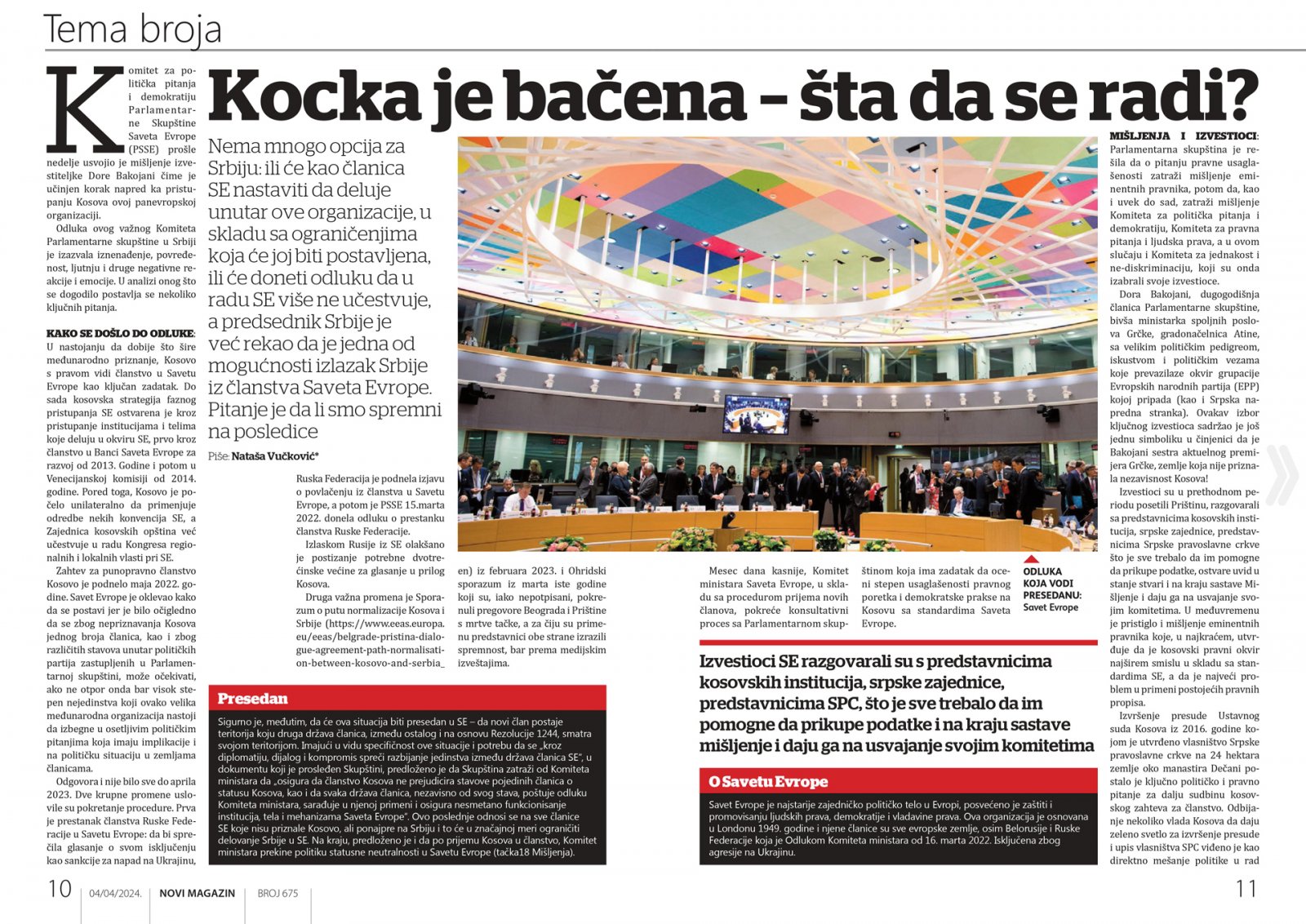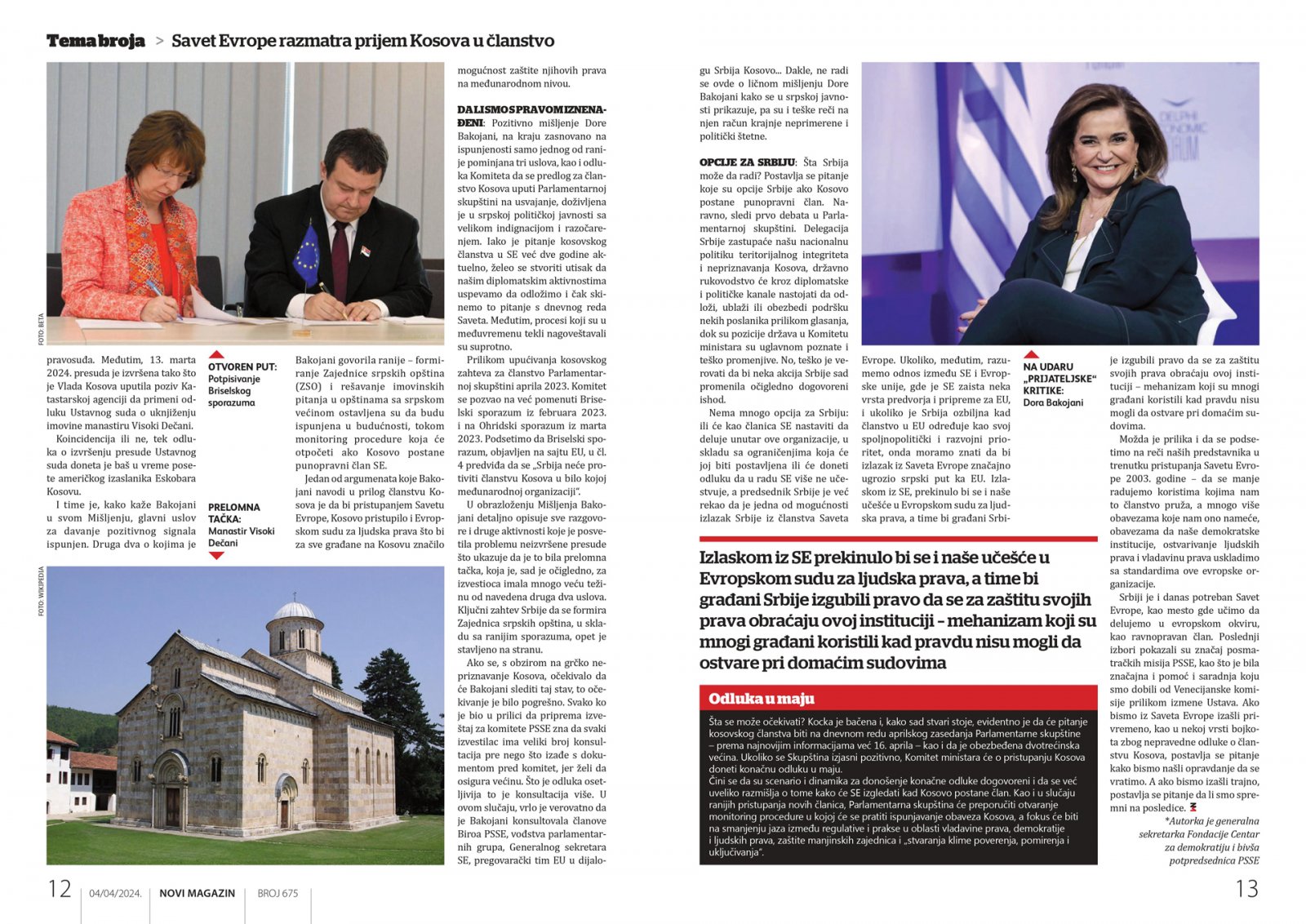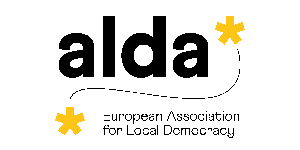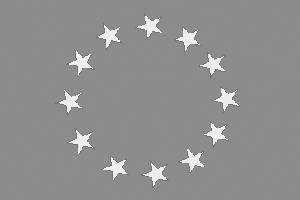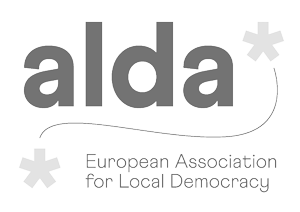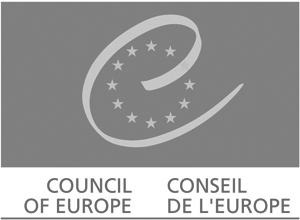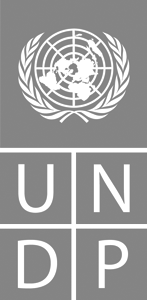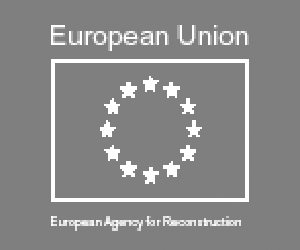The Die is Cast - Now What?
Nataša Vučković, author of the text for Novi Magazin weekly newsmagazine
Last week, the Committee on Political Affairs and Democracy of the Parliamentary Assembly of the Council of Europe (PACE) adopted Dora Bakoyannis’ opinion, thus taking a step forward towards Kosovo’s accession to the Pan European Organisation.
The decision adopted by this important Committee of the Parliamentary Assembly came as a surprise in Serbia, causing feelings of pain, anger and other equally negative reactions and emotions. In analysing this event, several key issues arise.
How Was This Decision Derived At? In its effort to gain the widest possible international recognition, Kosovo rightly sees membership in the Council of Europe as a key objective. Until now, Kosovo's strategy of phased accession to the CoE has been accomplished through accession to institutions and bodies operating within the CoE; first through membership in the Council of Europe Development Bank in 2013 and then the Venice Commission in 2014. Additionally, Kosovo has begun to unilaterally enforce the provisions of several CoE conventions, while the Association of Kosovo Municipalities already participates in the work of the Congress of Local and Regional Authorities at the CoE.
The application for full membership was submitted by Kosovo in May 2022. The Council of Europe hesitated in taking its stance as it was obvious that due to the non-recognition of Kosovo by a number of member states, as well as the different positions held within political parties represented in the Parliamentary Assembly, one could expect, if not resistance, then at least a high degree of disunity, which a large international organisation like this tries to avoid in relation to sensitive political issues with implications for the political situation in member states as well.
There was no response until April 2023. Two major changes led to the initiation of the procedure. The first was termination of the Russian Federation’s membership in the Council of Europe: with the intention of preventing the vote on its exclusion as one of the sanction measures resulting from its attack on Ukraine, the Russian Federation submitted a statement of withdrawal from the Council of Europe. On 15 March 2022, PACE took the decision to seize the Russian Federation’s CoE membership. Russia’s exit from the CoE facilitated the necessary two-thirds majority vote in favour of Kosovo.
Another important change is the Agreement on the Path to Normalisation between Kosovo and Serbia [1] from February 2023 and the Ohrid Agreement from March of the same year, which, although unsigned, moved negotiations between Belgrade and Pristina from a deadlock. The implementation of said agreements was agreed between the representatives of both sides, at least according to media reports.
One month later and in line with the procedure for accepting new members, the Committee of Ministers of the Council of Europe initiated a consultation process with the Parliamentary Assembly, tasked with assessing the degree of compliance of the legal system and democratic practices in Kosovo with EC standards.
Opinions and Rapporteurs: Concerning the issue of legal compliance, the Parliamentary Assembly decided to seek opinions of distinguished legal experts, then, as usual, the opinions of the Committee on Political Affairs and Democracy, the Committee on Legal Affairs and Human Rights, and in this case the Committee on Equality and Non- discrimination as well, who then chose their rapporteurs.
Dora Bakoyannis, a long-time member of the Parliamentary Assembly, former Greek Minister of Foreign Affairs and Mayor of Athens, has outstanding political pedigree, experience and political connections extending beyond the European People's Party (EPP) to which she belongs (as well as the Serbian Progressive Party). Selecting Bakoyannis as the key rapporteur includes another layer of symbolism, given the fact that she is the sister of the current Greek Prime Minister, a country that does not recognise Kosovo's independence!
In the previous period, the rapporteurs visited Pristina, spoke with the representatives of Kosovo institutions, the Serbian community, representatives of the Serbian Orthodox Church, all of which was intended to help them collect data, gain insight into the state of affairs, and finally draw up an Opinion and submit it to their respective committees for adoption. Meanwhile, the opinions of prominent lawyers have emerged, stating that, in short, Kosovo’s legal framework in the broadest sense is in accordance with CoE standards and that the main issue is the application of existing legal regulations.
The execution of the Kosovo Constitutional Court’s judgement in 2016, which upheld the ownership of the Serbian Orthodox Church (SOC) over 24 hectares of land surrounding the Visoki Dečani Monastery has become a crucial political and legal issue for the fate of Kosovo's membership request. The refusal of several governments of Kosovo to support the execution of the Judgement and the registration of SOC ownership was seen as the direct interference of politics in the work of the judiciary. However, on 13 March 2024, the Judgement was executed. The Government of Kosovo issued a call instructing the Cadastral Agency to enforce the decision of the Constitutional Court regarding registration of the Visoki Dečani Monastery property.
Coincidentally or not, the decision on the execution of the Constitutional Court's judgement was made at the same time as the American Deputy Assistant Secretary Gabriel Escobar’s, visit to Kosovo.
And with that, as Bakoyannis states in her Opinion, the main condition for giving the green light was fulfilled. The other two conditions that Bakoyannis spoke about earlier - the formation of the Association of Serb Municipalities (ASM) and the resolution of property issues in municipalities with a Serbian majority are yet to be fulfilled, during the monitoring procedure that is set to commence should Kosovo become a full member of the Council of Europe.
One of Bakoyannis’ arguments in support of Kosovo's membership is that by joining the Council of Europe, Kosovo will also join the European Court of Human Rights, which will ensure the protection of rights of all Kosovo citizens at the international level.
Should We Be Surprised? Dora Bakoyannis’ positive opinion, ultimately based on the fulfilment of only one of the three conditions, as mentioned earlier, as well as the decision rendered by the Committee to refer the proposal for membership to the Parliamentary Assembly for adoption, were received with indignation and disappointment by the Serbian political community. Despite the fact that the issue of Kosovo’s membership in the CoE has been in the wood works for two years now, we were misled into believing that our diplomatic endeavours could postpone or even remove this matter from the CoE’s agenda. However, ongoing processes indicated the opposite.
When submitting Kosovo's request for membership to the Parliamentary Assembly in April 2023, the Committee referred to the already mentioned Brussels Agreement of February 2023 and the Ohrid Agreement of March 2023. Let us recall that the Brussels Agreement, published on the EU website, stipulates in Art. 4 that "Serbia will not oppose Kosovo’s membership in any international organisation".
In the rationale of the Opinion, Bakoyannis describes in detail all the conversations and other activities she dedicated to the issue of the unexecuted judgment, which indicates that this was a turning point, which obviously, had much greater weight for the rapporteur than the other two conditions mentioned. In accordance with earlier agreements, Serbia's key request to form the Association of Serb Municipalities was again put aside.
If, considering Greece’s refusal to recognise Kosovo, it was expected that Bakoyannis would hold the same position - such expectations were wrong. Anyone who has had the opportunity to prepare a report for PACE committees knows that each rapporteur has a large number of consultations before presenting to the committee, because they want to ensure majority support. The more sensitive the decision, the greater number of consultations. In this case, it is very likely that Bakoyannis consulted the members of the PACE Bureau, the leadership of the parliamentary groups, the General Secretary of the Council of Europe and the EU negotiation team in the Serbia-Kosovo dialogue, etc. Hence, this is not a question of Dora Bakoyannis' personal opinion as it has been presented to the Serbian public. Consequently, harsh words against her are extremely inappropriate and politically harmful.
What Can We Expect Moving Forward? The die is cast and, based on the current situation, it is evident that the issue of Kosovo's membership will be on the agenda of the Parliamentary Assembly’s April session. This is according to the latest information as of 16 April, and the fact that a two-thirds majority has been secured. If the Assembly adopts the proposal, the Committee of Ministers will make a final decision on Kosovo's accession in May.
It seems that the scenario and dynamics for reaching a final decision have been agreed upon, and considerable deliberation has already gone into the configuration of the CoE once Kosovo attains membership. As in the case of earlier accessions of new members, the Parliamentary Assembly will recommend the initiation of a monitoring procedure in which the fulfilment of Kosovo's obligations will be observed, and focus will be placed on reducing the gap between regulation and practice in the areas of rule of law, democracy and human rights, protection of minority communities and "creating a climate of trust, reconciliation and inclusion".
A Precedent. It is certain that this situation will be a precedent in the CoE - gaining a new member whose territory belongs to another member state, pursuant to Resolution 1244, inter alia. Having in mind the specificity of this situation and the need "to prevent the breakdown of unity between the member states of the Council of Europe through diplomacy, dialogue and compromise", in the document forwarded to the Assembly, it was proposed that the Assembly ask the Committee of Ministers to "ensure that the membership of Kosovo does not prejudice the views of individual members on the status of Kosovo. Furthermore, that each member state, regardless of its position, respects the decision of the Committee of Ministers, cooperates in its implementation and ensures the seamless functioning of institutions, bodies and mechanisms of the Council of Europe". The latter applies to all members of the Council of Europe that have not recognised Kosovo’s independence, but above all to Serbia, which will significantly limit its influence in the Council of Europe. Finally, it was proposed that upon Kosovo’s admission, the Committee of Ministers should end the status neutrality policy within the Council of Europe (point 18 of the Opinion).
Serbia’s Options: What can Serbia do? If Kosovo becomes a full member, this begs the question: what are Serbia’s future options? Naturally, a Parliamentary Assembly debate is first. The Serbian delegation will advocate our national policy of territorial integrity and non-recognition of Kosovo. The state leadership will endeavour through diplomatic and political channels to delay, mitigate, or secure the support of certain lawmakers during the voting, while the positions of states in the Committee of Ministers are generally known and difficult to change. It is hard to believe that any action taken by Serbia now would change the evidently predetermined outcome.
Not many options exist for Serbia: either it will continue to operate within this organisation as a member of the Council of Europe, in accordance with the limitations to be imposed on it, or it will decide to no longer participate in the work of the Council of Europe. The President of Serbia has already stated that one of the possibilities is Serbia's withdrawal from CoE membership. However, if we understand the relationship between the Council of Europe and the European Union, where the Council of Europe serves as a sort of antechamber and preparation for EU membership, and if Serbia is serious about making EU membership its foreign policy and developmental priority, then we must understand that withdrawing from the Council of Europe would significantly jeopardise its path towards the EU. By withdrawing from the Council of Europe, our participation in the European Court of Human Rights would also be terminated, depriving Serbian citizens of the right to address this institution for the protection of their rights — a mechanism that many have utilised when they were unable to obtain justice through domestic courts.
Perhaps here is an opportunity to recall the words of our representatives at the time of accession to the Council of Europe in 2003 — we should be less excited about the benefits that membership provides us, and much more about the obligations it imposes on us. Obligations to align our democratic institutions, human rights enforcement, and the rule of law with the standards of this European organisation.
Serbia still needs the Council of Europe, as a place where we learn to operate within the European framework as an equal member. The recent elections have highlighted the importance of PACE observation missions, just as the assistance and collaboration we received from the Venice Commission during the constitutional amendments was crucial. Should we exit the CoE temporarily, as a sort of boycott to an unjust decision regarding Kosovo's membership, the question arises as to how we would justify our return. And, should we exit permanently, the question is: are we ready to face the consequences?
The author is the Secretary General, Center for Democracy Foundation and former Vice President of the PACE
Source: Novi magazin
PUBLICATIONS
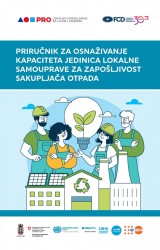 Manual for Strengthening the Capacities of Local Self-Government Units for the Employability of Waste Pickers
Manual for Strengthening the Capacities of Local Self-Government Units for the Employability of Waste Pickers
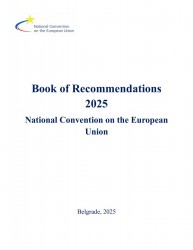 NCEU Book of Recommendations 2025
NCEU Book of Recommendations 2025
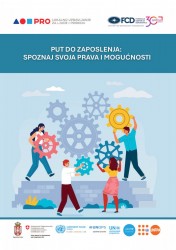 Manual “The Path to Employment: Get to Know Your Rights and Opportunities”
Manual “The Path to Employment: Get to Know Your Rights and Opportunities”
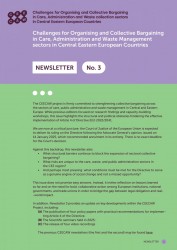 Challenges for Organising and Collective Bargaining in Care, Administration and Waste collection sectors in Central Eastern European Countries
Challenges for Organising and Collective Bargaining in Care, Administration and Waste collection sectors in Central Eastern European Countries
 Public Policy Proposals – Collective Bargaining (CEECAW)
Public Policy Proposals – Collective Bargaining (CEECAW)
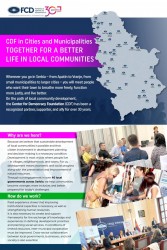 CDF in Cities and Municipalities: Together for a Better Life in Local Communities
CDF in Cities and Municipalities: Together for a Better Life in Local Communities
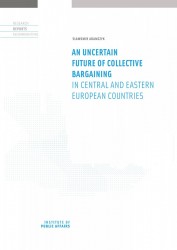 Comparative reports on collective bargaining - CEECAW
Comparative reports on collective bargaining - CEECAW
 POLITEIA – Regional School for Youth Participation 2025 (leaflet)
POLITEIA – Regional School for Youth Participation 2025 (leaflet)
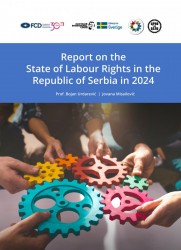 Report on the State of Labour Rights in the Republic of Serbia in 2024
Report on the State of Labour Rights in the Republic of Serbia in 2024
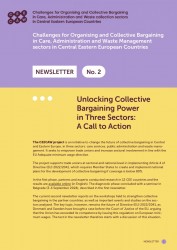 Unlocking Collective Bargaining Power in Three Sectors: A Call to Action
Unlocking Collective Bargaining Power in Three Sectors: A Call to Action
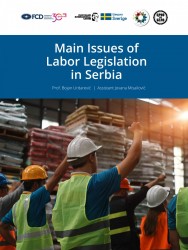 Main Issues of Labor Legislation in Serbia
Main Issues of Labor Legislation in Serbia
 New Monitoring Report by the “SDGs for All” Platform: Is the End Goal in Sight?
New Monitoring Report by the “SDGs for All” Platform: Is the End Goal in Sight?
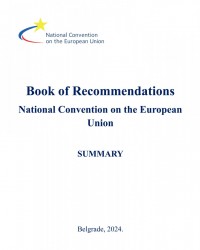 NCEU Book of Recommendations 2024 (Summary)
NCEU Book of Recommendations 2024 (Summary)
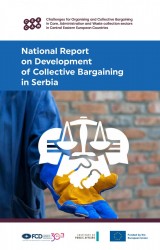 National reports on collective bargaining in Serbia - CEECAW
National reports on collective bargaining in Serbia - CEECAW
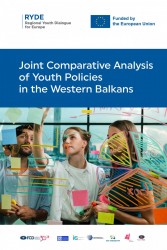 The Comparative Analysis of Youth Policies in the Western Balkans (WB)
The Comparative Analysis of Youth Policies in the Western Balkans (WB)
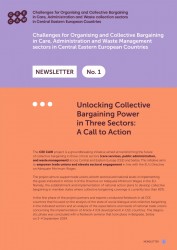 Unlocking Collective Bargaining Power in Three Sectors: A Call to Action
Unlocking Collective Bargaining Power in Three Sectors: A Call to Action
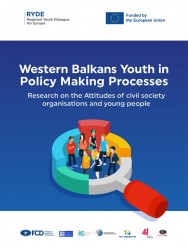 Western Balkans Youth in Policy Making Processes
Western Balkans Youth in Policy Making Processes
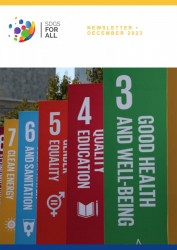 SDGs for All Platform newsletter (December 2023)
SDGs for All Platform newsletter (December 2023)


